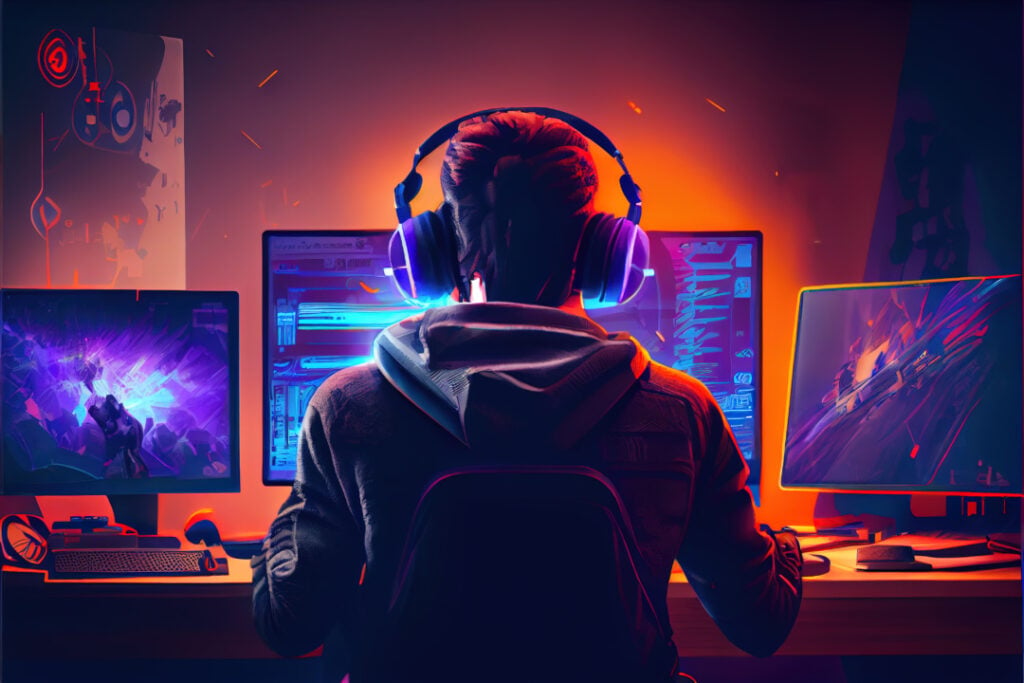A New Era of Connected Play
The landscape of online gaming has transformed dramatically in recent years. From solo experiences driven by AI to dynamic, social, and interactive multiplayer environments, the gaming industry is moving swiftly toward real-time connectivity. This trend is especially visible in casino-style games, where live interactions, competitive features, and synchronous gameplay now define the player experience. Behind this shift are highly specialized game development studios that bring together technical expertise, real-time server architecture, and user experience design to deliver seamless multiplayer features.
What once required local networks or LAN parties is now available on-demand to millions of users globally. Thanks to advances in cloud technology, peer-to-peer networking, and robust game engines, players can join a virtual poker table, spin a live roulette wheel, or compete in blackjack tournaments with others from around the world — all in real time. This level of instant connection has redefined what players expect from their gaming experiences.
Social Connectivity as a Core Feature
One of the key reasons real-time multiplayer gaming has taken center stage is the human need for connection. Modern players aren’t just looking for excitement or challenge — they also crave interaction. Casino games, in particular, have always had a social element at their core. The chatter at a blackjack table, the tension of a high-stakes poker hand, or the cheers around a roulette wheel — these are moments that define the atmosphere of a casino.
Online game studios have taken these elements and recreated them in the virtual world, using real-time communication tools such as chat, emojis, avatars, and even video streaming to simulate the casino floor. These interactive features not only make gameplay more immersive but also significantly increase user engagement and retention. Players are more likely to return when they can share experiences with others, build rivalries, or simply enjoy a few games with friends.
Real-time multiplayer design brings people together in meaningful ways, and the demand for social features continues to grow across all genres. In casino games, these features are not a luxury — they’re a necessity. A casino game development studio that fails to implement real-time connectivity risks falling behind in a market that is quickly becoming more competitive and more connected.
The Technical Challenge of Real-Time Play
Creating a successful real-time multiplayer game requires far more than just connecting players to the same server. It demands low-latency networking, synchronized game logic, scalable server architecture, and strong anti-cheat mechanisms. This is where specialized game studios show their value. Their ability to build and maintain the technical foundations of real-time play is what allows these experiences to feel fluid and fair.
For casino games, where outcomes can have financial implications, timing is everything. A single delay in card dealing or spin result can break a player’s trust. As a result, studios invest heavily in robust server solutions and real-time engines that can support thousands — if not millions — of concurrent users without lag. The goal is to deliver a consistent, real-time experience across platforms, whether users are playing on mobile devices, desktops, or smart TVs.
Moreover, ensuring fairness and security in multiplayer casino games introduces another layer of complexity. Random number generators (RNGs), secure payment integration, and real-time monitoring tools must all work together to protect both the platform and its users. These are not simple tasks — they require coordination across development, infrastructure, and compliance teams.
Creating Experiences, Not Just Games
The most successful multiplayer games today are those that deliver more than gameplay — they deliver experiences. Casino games with real-time features are now blurring the line between gaming and entertainment. Live dealers, streaming-quality visuals, and seasonal in-game events create environments that feel less like apps and more like digital destinations.
Studios that specialize in this type of game development understand that players are looking for atmosphere as much as functionality. Sound design, UI responsiveness, community management, and ongoing content updates are all part of the equation. Real-time interaction amplifies every part of the gaming experience, and it also opens the door for innovative formats like cooperative challenges, loyalty tournaments, and cross-platform leaderboards.
A development studio focusing on casino-style games is no longer just building a game — it’s building a social venue. The focus has shifted from standalone gameplay loops to shared moments and ongoing player relationships. With the ability to join, watch, chat, and celebrate wins together in real time, online gaming has never felt more alive.
Looking Ahead
Real-time multiplayer gaming is not a passing trend — it is the foundation for the next generation of online games. As internet infrastructure continues to improve and player expectations evolve, studios will need to push the boundaries of what real-time means. From virtual reality casinos to hybrid live-streamed and interactive formats, the possibilities are just beginning to emerge.
For game development studios, especially those in the casino space, mastering real-time multiplayer is now a defining capability. It is the intersection of technology, psychology, and creativity — and the studios that embrace it are shaping the future of digital entertainment.

Rick Heicksen is the Vice President of Sales at Chetu, Inc., a renowned global software development company. He manages accounts in multiple sectors, including Food & Beverage, Agriculture, Transportation, Energy, and IT Service Management. With his expertise in business development and exceptional customer service, Rick has helped many clients grow their businesses. Rick is known for his versatility and ability to keep pace with technological advancements, which has significantly influenced his success at Chetu. He earned his degree from Chapparal Community College and is passionate about staying up-to-date with the latest industry trends. Since joining Chetu in 2019, he has risen quickly and established himself as a thought leader within the Food and Beverage community, helping the company grow into an award-winning organization.






